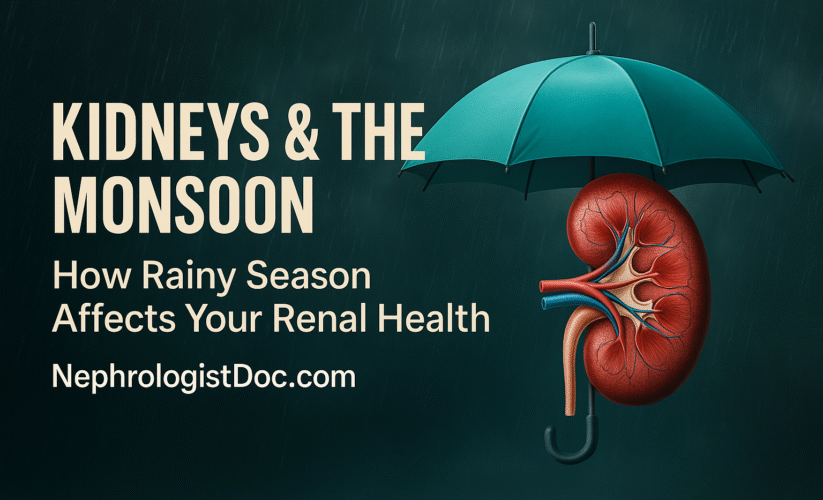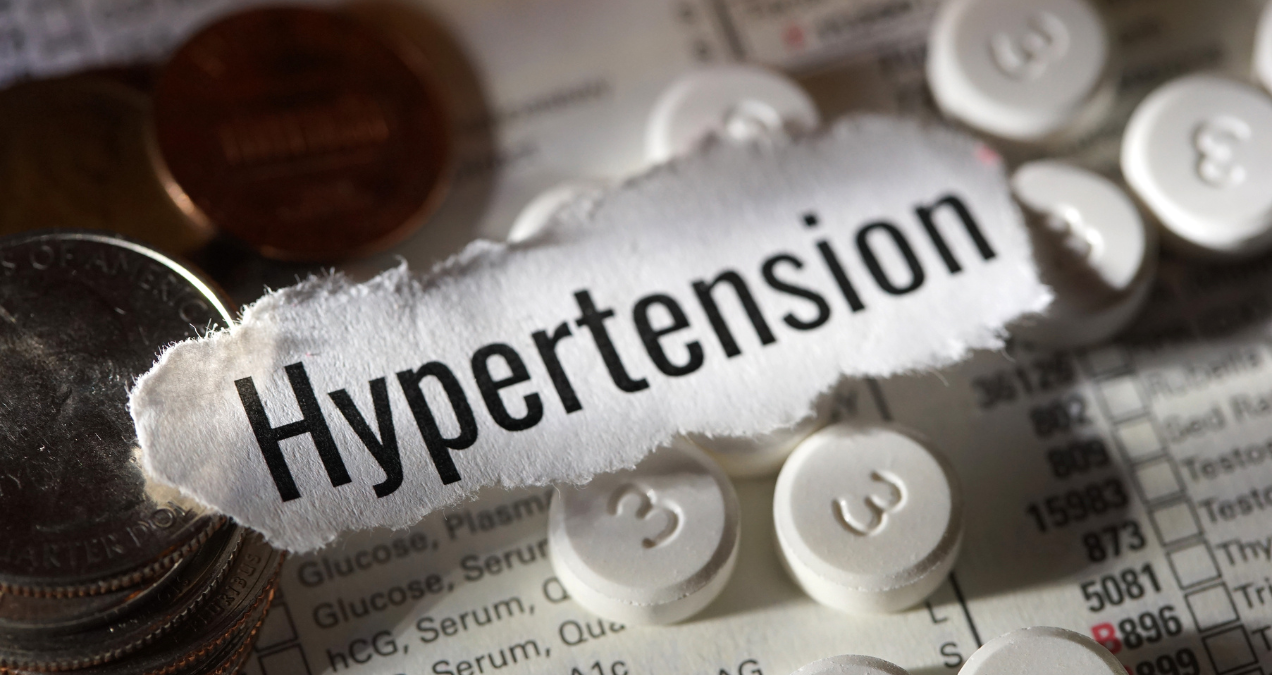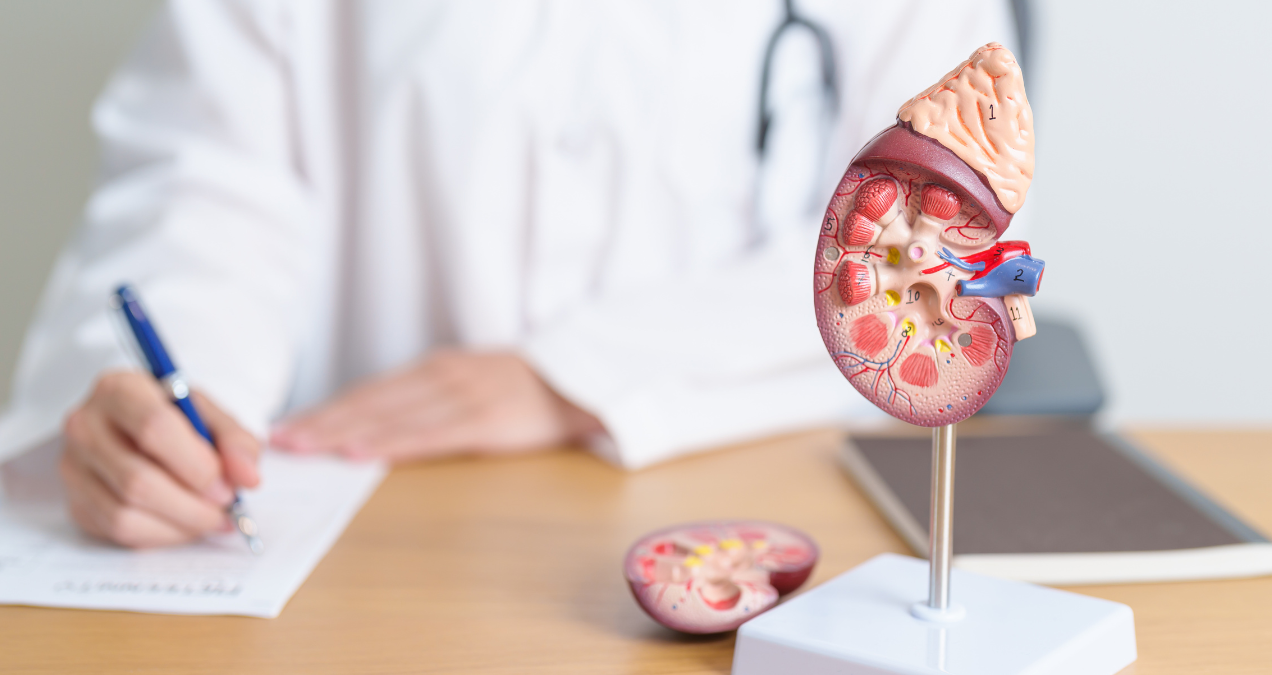10 Everyday Habits That May Be Harming Your Kidneys Without You Knowing

Your kidneys work 24/7 to filter waste, balance electrolytes, regulate blood pressure, and keep your body functioning properly — yet they are often the most overlooked organs when it comes to preventive care. Many people unknowingly adopt lifestyle habits that strain their kidneys over time, increasing the risk of kidney damage or failure.
As a seasoned nephrologist with over 25 years of experience in kidney care, I, Dr. Shashidhar Shree Niwas, often see patients who are surprised to learn that their daily routines may be harming their kidneys. In this blog, I’ll highlight 10 everyday habits that can negatively affect your kidney health and offer tips on how to protect these vital organs.
1. Overuse of Painkillers (NSAIDs)
While nonsteroidal anti-inflammatory drugs (NSAIDs) like ibuprofen and naproxen are effective for relieving pain and inflammation, their frequent or prolonged use can reduce blood flow to the kidneys, leading to kidney damage over time. People with existing kidney issues, diabetes, or high blood pressure are especially vulnerable.
Tip: Use painkillers sparingly and under medical supervision. Explore alternative pain relief methods when possible.
2. Not Drinking Enough Water
Hydration is essential for kidney function. Water helps the kidneys flush out toxins and waste products from the body. When you’re consistently dehydrated, waste can accumulate, increasing the risk of kidney stones and infections.
Tip: Aim for 8–10 glasses of water daily, or more if you’re physically active or live in a hot climate. Listen to your body — thirst is often a late indicator of dehydration.
3. High-Sodium and Processed Foods
Excess salt intake is a major contributor to high blood pressure, which is one of the leading causes of kidney damage. Processed foods — including canned soups, snacks, sauces, and fast food — are often loaded with hidden sodium.
Tip: Read food labels and choose low-sodium options. Cook fresh meals at home using herbs and spices instead of salt for flavour.
4. Holding in Urine Frequently
Ignoring the urge to urinate can strain your bladder and kidneys, increasing the risk of urinary tract infections (UTIs) and kidney infections. Over time, this can cause long-term damage.
Tip: Make regular bathroom breaks a priority. Don’t delay urination, especially if you’re prone to UTIs.
5. Excessive Protein Intake
While protein is essential for health, an excessively high-protein diet — especially popular in weight loss and bodybuilding circles — can put added stress on the kidneys, particularly in people with pre-existing kidney conditions.
Tip: Balance your protein intake with other nutrients and consult a doctor or dietitian before starting a high-protein diet.
6. Lack of Regular Health Check-Ups
Kidney disease often develops silently and may not show symptoms until it’s advanced. Conditions like high blood pressure and diabetes can quietly damage the kidneys over time if not managed properly.
Tip: Schedule routine health check-ups and kidney function tests, especially if you have risk factors such as diabetes, hypertension, or a family history of kidney disease.
7. Smoking and Alcohol Consumption
Smoking damages blood vessels, reducing blood flow to the kidneys and speeding up the progression of kidney disease. Excessive alcohol can lead to dehydration, high blood pressure, and direct toxicity to kidney tissues.
Tip: Quit smoking and limit alcohol intake. Your kidneys — and your entire body — will thank you.
8. Poor Management of Diabetes or Hypertension
These two conditions are the leading causes of chronic kidney disease (CKD). Uncontrolled blood sugar and blood pressure gradually weaken the kidneys’ filtering ability, eventually leading to kidney failure.
Tip: Manage these conditions through medication, diet, exercise, and regular monitoring. Early intervention is key to preventing kidney complications.
9. Sedentary Lifestyle
Lack of physical activity contributes to obesity, high blood pressure, and poor blood sugar control — all of which are risk factors for kidney disease.
Tip: Incorporate at least 30 minutes of physical activity into your daily routine, whether it’s walking, cycling, yoga, or any other form of exercise you enjoy.
10. Overuse of Certain Supplements or Herbal Products
Some over-the-counter supplements, detox teas, and herbal remedies claim to “cleanse” your kidneys or improve health but may actually contain harmful substances that can burden the kidneys or cause toxicity.
Tip: Always consult your healthcare provider before starting any supplement, especially if you have kidney issues or take medications.
The Silent Suffering of Your Kidneys
Your kidneys don’t often “speak up” until significant damage has occurred. That’s why prevention and awareness are essential. By making small but meaningful changes to your lifestyle, you can reduce your risk of kidney damage and support long-term kidney health.
Why Trust Dr. Shashidhar Shree Niwas?
At the Kidney and Hypertension Clinic, we specialize in early detection, diagnosis, and treatment of kidney disorders. With over two decades of experience in nephrology, I provide personalized care for every patient — whether it’s preventing kidney disease, managing high blood pressure, or offering dialysis and transplant guidance.
Our mission is to educate, empower, and ensure that every patient receives the best possible kidney care.
Final Thoughts
Your kidneys are small, but they have a big job. Don’t wait for symptoms to show up — act now to protect them. If you’re concerned about your kidney health or simply want to learn more, schedule a consultation today.






